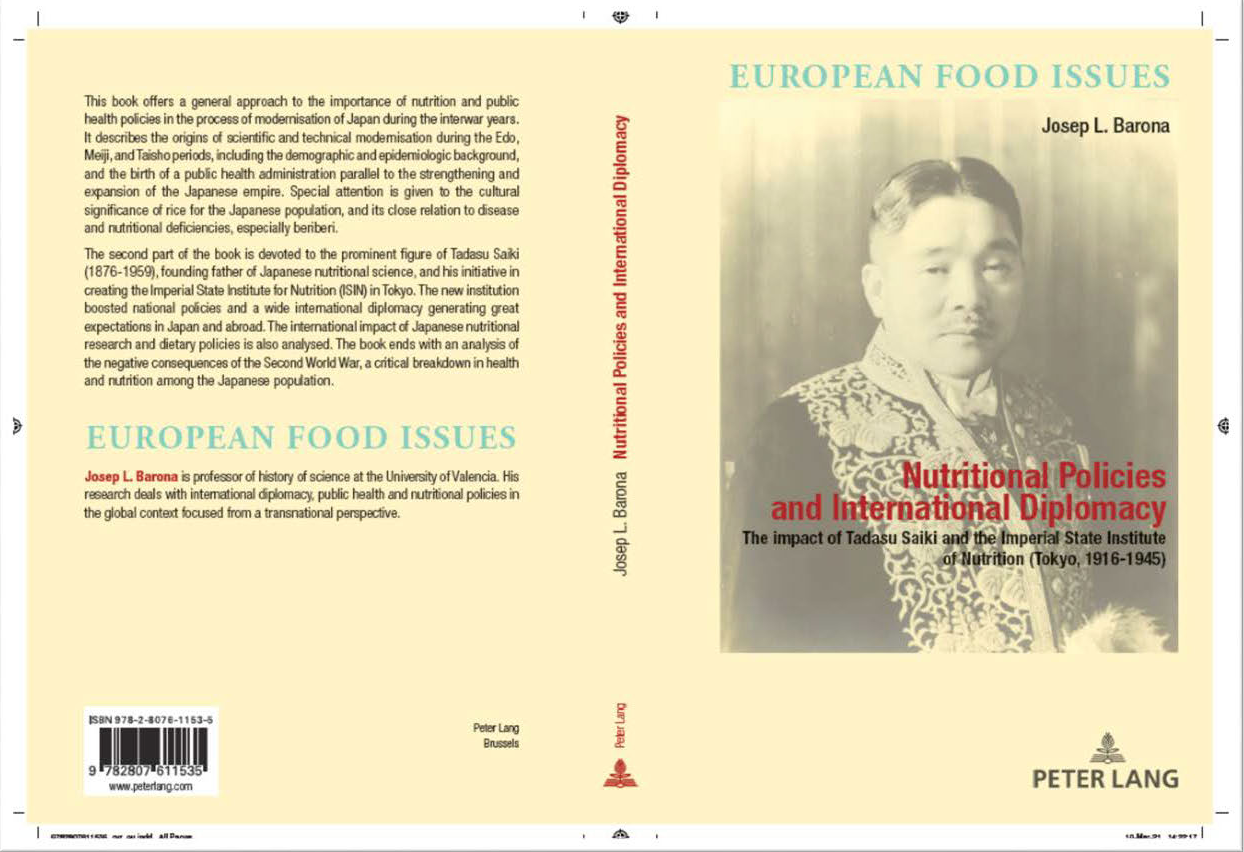
Josep L. Barona. Nutritional Policies and International Diplomacy. The impact of Tadasu Saiki and the Imperial State Institute of Nutrition (Tokio, 1916-1945). Brussels, Peter Lang, 2021, 240 p.
ISBN: 978-2-8076-1153-5
In his new book “Nutritional Policies and International Diplomacy. The impact of Tadasu Saiki and the Imperial State Institute of Nutrition (Tokyo, 1916-1945)”, Josep L Barona analyses the importance of nutritional policies and public health in the modernization of Japan and its imperial expansion in the interwar years. The book is a result of his academic work at Kumamoto University and his research in Tokyo, published in Brussels by the international publisher Peter Lang. It describes the origins of the scientific and technical modernization of Japan, paying special attention to the demographic and epidemiological context, and the birth of a health administration parallel to the strengthening and expansion of the Japanese empire. Barona discusses the cultural importance and the symbolic meaning of rice for the Japanese population in close relation to disease and nutritional deficiencies, especially beriberi. The second part of the book is devoted to the figure of Tadasu Saiki (1876-1959), founding father of the science of nutrition in Japan, and the historical importance of his initiative creating the Imperial State Institute of Nutrition (ISIN) in Tokyo. The new institution promoted food policies and deployed extensive international diplomacy, generating great expectations in Japan and abroad. The book also analyses the international impact of Japanese researchers, the nutritional education of the population and the dietary policies deployed by health authorities. It concludes with an analysis of the negative consequences of the Second World War, which caused a profound crisis in the health and nutritional condition of the Japanese population. In addition to historical sources from the National Institute of Hygiene and Nutrition (Tokyo) and the National Diet Library (Tokyo), the research is grounded on sources from the Archives of the League of Nations (Geneva) and the Rockefeller Archive Center (New York).










